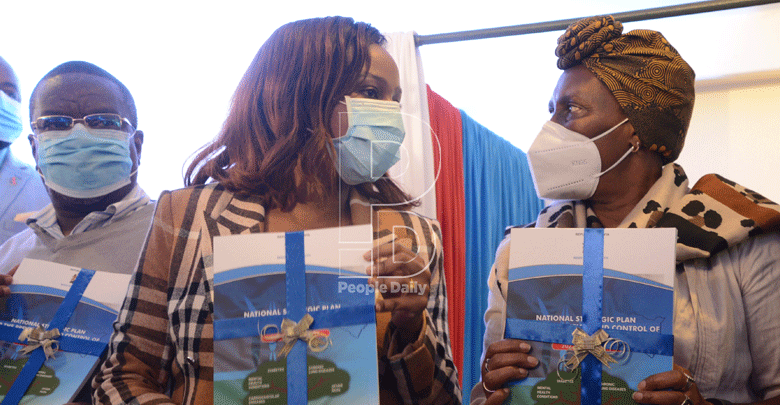Alarm as lifestyle Non-Communicable Diseases rise by 12pc

George Kebaso @Morarak
Deaths from Non-Communicable Diseases (NCDs) have increased by 12 per cent in the last seven years.
Data shows that deaths from NCDs rose from 27 per cent in 2014 to 39 per cent in 2021.
It is projected that deaths from NCDs will increase by 55 per cent while those from injuries will increase by 25 per cent by 2030 resulting in a “triple burden of diseases” which the government and partners say is increasingly straining the country’s health system.
Health Cabinet Secretary, Mutahi Kagwe said yesterday NCDs have been increasing gradually and urged Kenyans to take responsibility in tackling the burden of the diseases because they are more of lifestyle in nature.
“Adopting preventive measures such as healthy diet; physical activity, as well as reducing tobacco and consumption of alcohol is paramount. Additionally, the public is urged to go for medical check-ups regularly; and for those living with NCDs, to take their medicines and attend clinics as advised by doctors to prevent complications,” the CS said when he launched the National Strategic Plan for the Prevention and Control of NCDs.
The new strategic plan 2021/22-2025/26 highlights increasing incidents of NCDs among younger age groups and lower socio-economic groups. It also focuses on prioritisation of people living with NCDs in the second phase of Covid-19 vaccination.
“We are calling for individual responsibility of citizens, and for people to be more careful on the choices they make especially when it touches on their nutrition,” Kagwe said in a speech read on his behalf by Health Chief Administrative Secretary, Dr Mercy Mwangangi.
Fruits and vegetables
A STEPWise Survey on NCD Risk Factors conducted in 2015 showed that more 90 per cent of Kenyan adult population consume less than the recommended amounts of vegetables and fruits while 27 per cent of the population are either overweight or obese.
Covid-19 pandemic has also exacerbated health outcomes for people living with NCDs as seen by the higher rates of severe disease, complications and mortality among Covid-19 patients with NCDs.
“These unfavourable health outcomes were compounded by the disruption of essential services witnessed during the early phase of the Covid-19 pandemic in Kenya.
“The launch of this strategic plan, therefore, is a major milestone in the country’s response to NCDs and is in line with the Ministry of Health’s efforts to halt and reverse these alarming trends,” said Carolyn Njuguna, PATH Country Director.
Mwangangi said the development of the strategic plan is informed by the need to strengthen comprehensive multi-sectoral response to the increasing NCD burden.
“The Strategy places emphasis on population wide prevention and control measures, as well as strengthening health systems for the whole continuum of care for NCDs,” she added.
Head of the Department of Non-Communicable Diseases, Dr Ephantus Maree, noted that the NCD strategic plan emphasises the importance of partnerships and stakeholder engagement in the fight against NCDs.
He said more finances need to be allocated towards NCD prevention and control.
The event also witnessed the launch of the National Framework for The Organisation of Trauma Services which seeks to ensure universal access to trauma care, given the increasing burden of injuries in the country.













